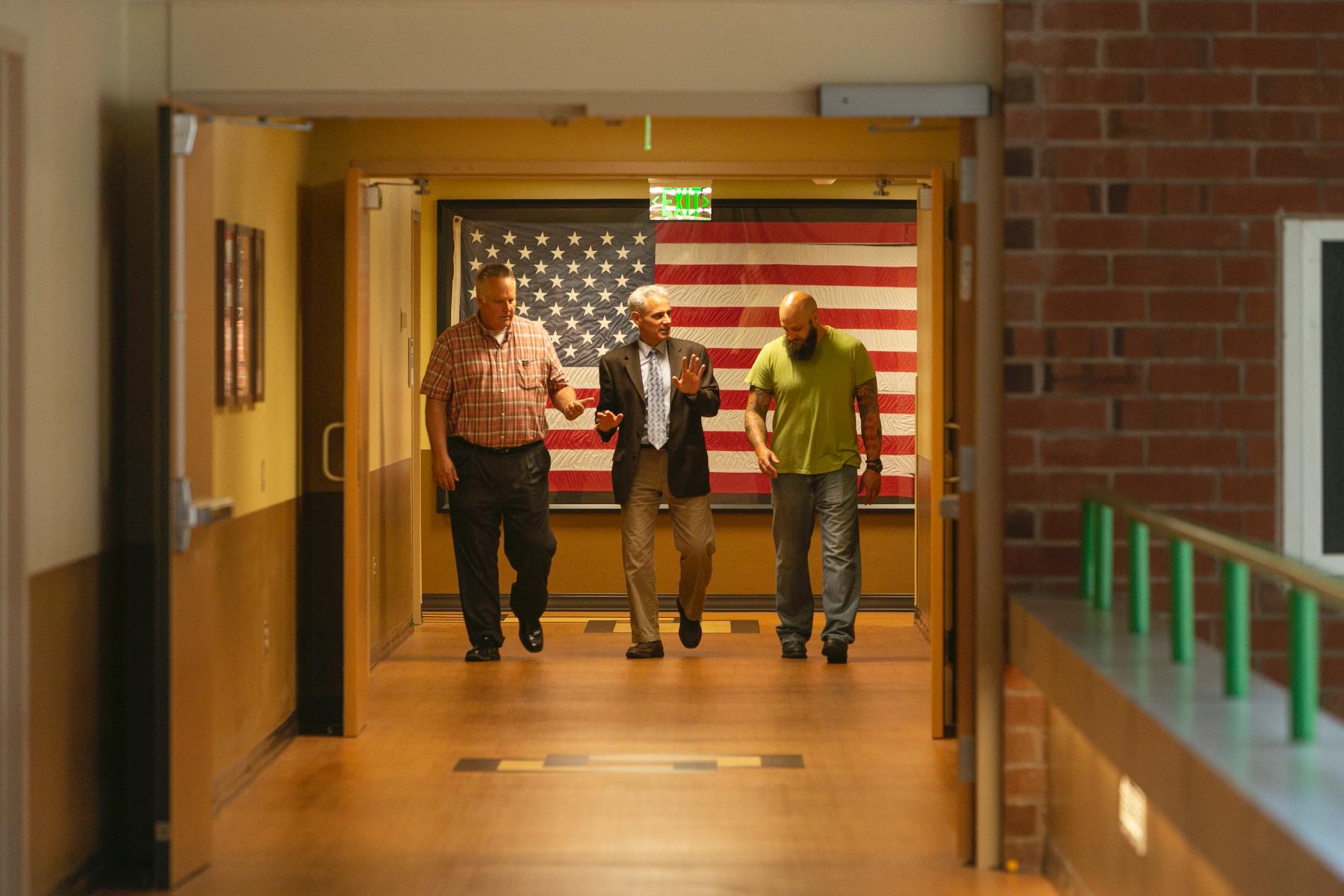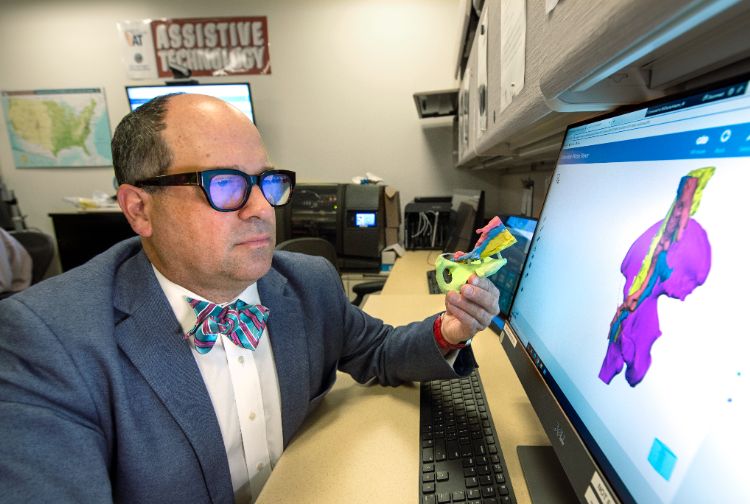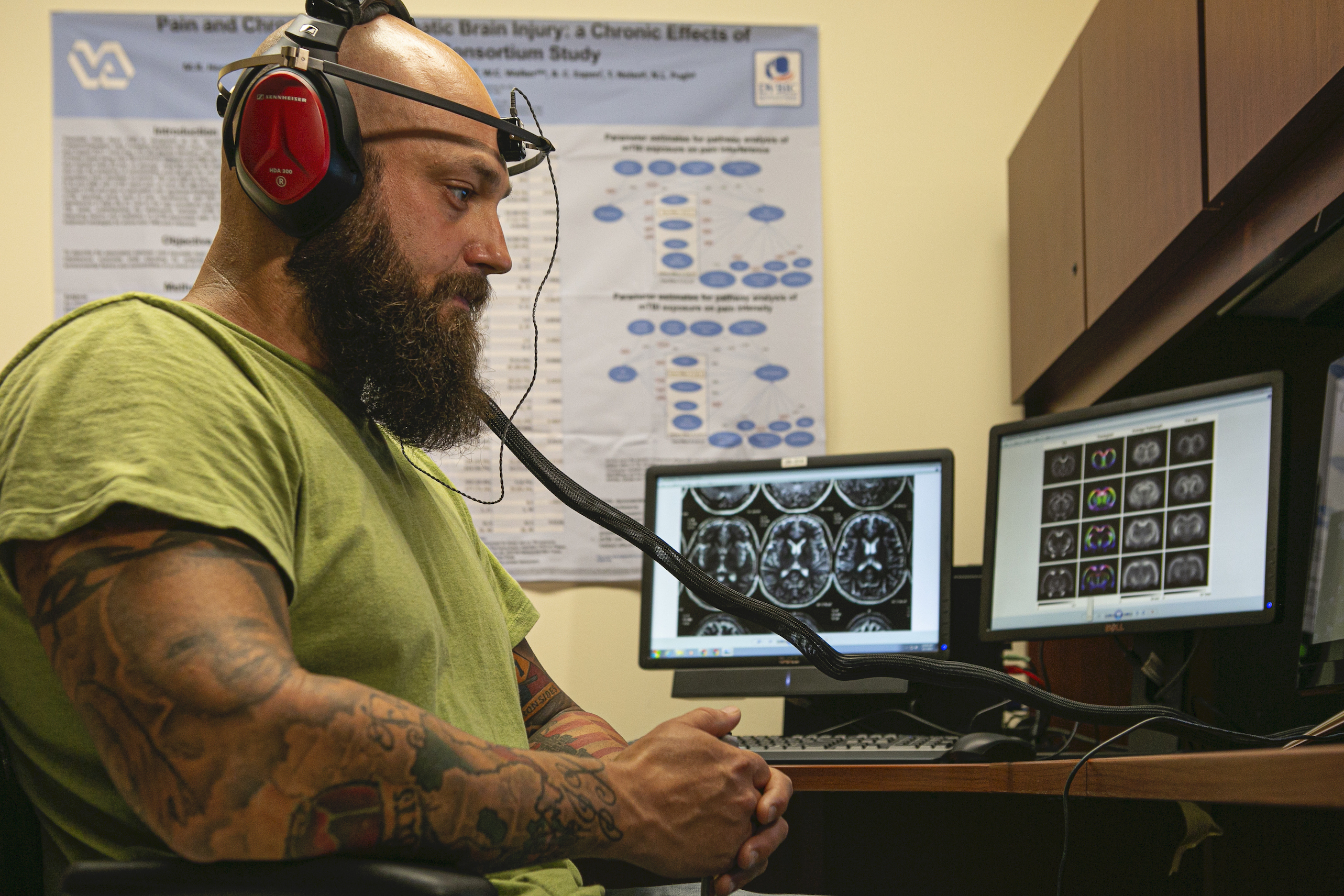VCU and the VA: A proud partnership
A recent AAMC article highlights medical advancements generated by the ongoing relationships between universities and the VA.

David Cifu, M.D., chair of the Department of Physical Medicine and Rehabilitation, walking alongside two veterans.
According to a recent article by the Association of American Medical Colleges (AAMC), 97% of U.S.-based medical universities are affiliated with the Department of Veteran Affairs (VA), and more than 70% of physicians in the U.S. have trained or worked in at least one of the VA’s 170 medical centers. VCU School of Medicine has a longstanding partnership with the Richmond Veterans Affairs Medical Center, ensuring that students, faculty and trainees have the opportunity to provide patient care and conduct research with a direct impact on veteran populations.
The AAMC article notes that partnerships between academic institutions and VA hospitals often foster large-scale research funded by federal grants. As a result, academic and VA-based researchers can collaborate on initiatives that lead to innovation and improve clinical care for both veteran and civilian patients. These relationships have led to advancements in highly specialized care for conditions including traumatic brain injury (TBI), post-traumatic stress disorder (PTSD) and prostheses for lost and injured limbs.
Since 2013, VCU has overseen a national consortium of partners to study the effects of TBI on service members and veterans. According to a 2023 executive summary of the Long-Term Impact of Military Relevant Brain Injury Consortium and Chronic Effects of Neurotrauma Consortium (LIMBIC-CENC), the consortium has “identified a range of clinically relevant findings that are being used to increase the awareness of primary care clinicians, veterans and family members to findings and risk factors related to combat exposure and mild TBI.”
"VCU has been a ‘blue ribbon’ affiliate of the Richmond VA Medical Center for more than 60 years and shares the highest level of academic, clinical and research collaboration,” said David X. Cifu, M.D., associate dean for innovation and systems integration at VCU School of Medicine and LIMBIC-CENC principal investigator since its inception. “It has been the longstanding recognition and support of the synergistic relationship that has led to increasing successes and the growth of opportunities.”
Other initiatives include 3D-printed anatomical models to improve the surgery experience for physicians and patients, and the partnership between VCU Health, the Central Virginia VA Health Care System and Sheltering Arms Institute to provide comprehensive, collaborative rehabilitation care.
“Nationally prominent universities like VCU, and like those we partner with, conduct research because it has the power to make the human experience better, and that's especially meaningful when it helps veterans who have given so much to our nation, sometimes at great personal expense,” said VCU President Michael Rao, Ph.D., in a 2019 VCU News article. “I am proud of VCU's commitment to research, innovation and scholarship that saves and improves lives.”
In December 2022, the U.S. Congress passed the VA Infrastructure Powers Exceptional Research Act, further solidifying the partnership between universities like VCU and the VA to continue medical and scientific research.


